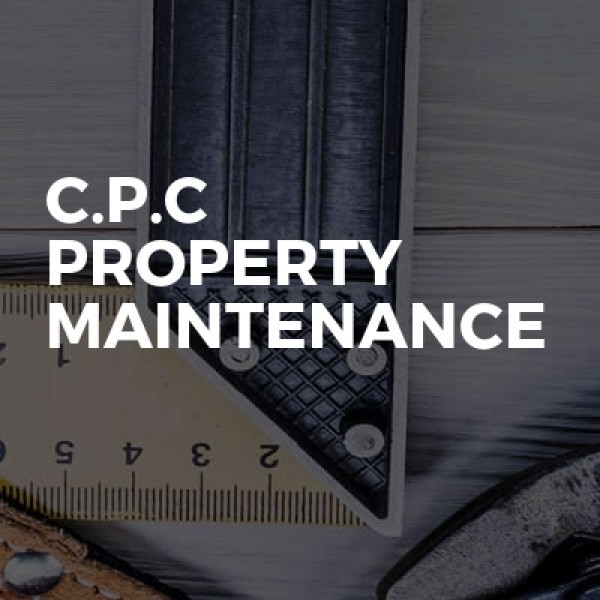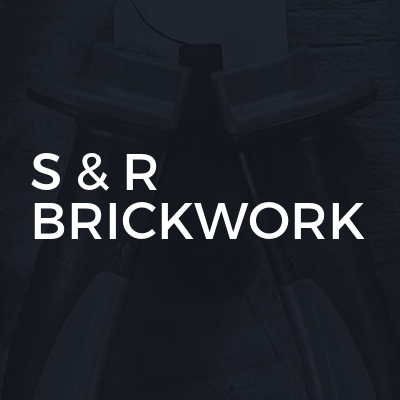Extension Builders in Shoreham-By-Sea
Welcome to PW Building And Carpentry Ltd, your go-to experts for all building and carpentry needs in North Moulsecoomb and across East Su... read more »
Welcome to JS Building, your premier choice for expert tradespeople services in Sompting and throughout West Sussex. As a distinguished c... read more »
B&M Builders is your go-to solution for all your building and renovation needs in Goring-by-Sea and the... read more »
FT Carpentry, based in the charming locale of Mount Pleasant, is your go-to expert for all things building and carpentry... read more »
Welcome to T.LE Contracting Ltd, your trusted partner for all building services in East Sussex. Based in Preston, we proudly serve the Ea... read more »
Welcome to Acorn Roofing & Building Services, your premier choice for builders, extension builders, roofers, bathroom fitters, and kitche... read more »
Welcome to Elite Choice Construction Services Ltd, your premier choice for expert building and renovation services in Saltdean and across... read more »
Welcome to HP Building Services Sussex, your trusted partner for all construction and property maintenance needs in Peacehaven... read more »
Welcome to C.P.C Property Maintenance, your trusted partner for all building and renovation n... read more »
South Coast Extensions LTD is your go-to choice for top-notch building services in the heart of Brightonread more »
S & R Brickwork is your go-to solution for all your building and renovation needs in Burgess Hill and t... read more »
LJR Building Services is a premier choice for all your construction and renovation needs in Fishersgate... read more »
Welcome to Maytrix Property Services Ltd, your truste... read more »
Welcome to Future Designs Solutions Ltd, your premier... read more »
RJH Brickwork Ltd: Your Trusted Building Expe... read more »
Gypsum Engineering, nestled in the h... read more »
Welcome t... read more »
Welcome to Brighton 1 Builders & Property Services, y... read more »
Welcome to RJG Construction, your trusted partner for... read more »
Search Extension Builders in places nearby
Understanding the Role of Extension Builders in Shoreham-By-Sea
Shoreham-By-Sea, a charming coastal town in West Sussex, is known for its picturesque landscapes and vibrant community. As the demand for housing and living space grows, many homeowners are turning to extension builders to enhance their properties. These professionals play a crucial role in transforming homes, adding value, and improving living conditions. Let's delve into the world of extension builders in Shoreham-By-Sea and explore their significance.
The Growing Demand for Home Extensions
In recent years, the need for additional living space has surged. Families are expanding, and lifestyles are evolving, prompting homeowners to seek more room without relocating. Home extensions offer a practical solution, providing extra space for various purposes such as home offices, playrooms, or additional bedrooms. In Shoreham-By-Sea, this trend is particularly noticeable due to the town's appeal and the desire to maintain proximity to its amenities and scenic beauty.
Benefits of Home Extensions
- Increased Property Value: A well-executed extension can significantly boost the market value of a home.
- Enhanced Living Space: Extensions provide the much-needed room for growing families or changing needs.
- Customisation: Homeowners can tailor extensions to suit their specific requirements and tastes.
- Cost-Effective: Compared to moving, extending a home can be a more economical choice.
Choosing the Right Extension Builder
Selecting the right extension builder is crucial for ensuring a successful project. Homeowners in Shoreham-By-Sea should consider several factors when making their choice.
Experience and Expertise
It's essential to choose builders with a proven track record in home extensions. Experienced builders bring valuable insights and skills to the table, ensuring high-quality workmanship and adherence to timelines.
Local Knowledge
Builders familiar with Shoreham-By-Sea understand the local architecture, planning regulations, and environmental considerations. This knowledge is invaluable in navigating potential challenges and ensuring compliance with local laws.
Client Testimonials and Reviews
Reading reviews and testimonials from previous clients can provide insights into a builder's reliability, professionalism, and quality of work. Positive feedback is a good indicator of a builder's reputation and customer satisfaction.
The Extension Building Process
Understanding the extension building process can help homeowners prepare for their project and set realistic expectations.
Initial Consultation and Planning
The process begins with an initial consultation where homeowners discuss their ideas and requirements with the builder. This stage involves assessing the feasibility of the project and developing a preliminary plan.
Design and Approval
Once the initial plan is agreed upon, the design phase begins. Builders work with architects to create detailed plans that meet the homeowner's vision and comply with local regulations. Obtaining necessary approvals and permits is a critical step in this phase.
Construction and Project Management
With approvals in hand, construction can commence. Builders manage the project, coordinating various tradespeople and ensuring the work progresses smoothly. Regular updates keep homeowners informed of the project's status.
Completion and Handover
Upon completion, a final inspection ensures the extension meets all specifications and quality standards. The builder then hands over the finished project to the homeowner, ready for use.
Common Types of Home Extensions
Homeowners in Shoreham-By-Sea have several options when it comes to extending their homes. Each type of extension serves different purposes and offers unique benefits.
Single-Storey Extensions
These extensions are popular for adding space to kitchens, living rooms, or dining areas. They typically extend the ground floor and can be designed to blend seamlessly with the existing structure.
Double-Storey Extensions
For those needing more space, double-storey extensions provide additional rooms on both the ground and upper floors. This option is ideal for expanding bedrooms or creating new living areas.
Loft Conversions
Converting an unused attic into a functional space is a cost-effective way to increase living area. Loft conversions can be transformed into bedrooms, offices, or playrooms, maximising the use of existing space.
Garage Conversions
Transforming a garage into a habitable room is another popular choice. This type of extension is perfect for creating home offices, gyms, or guest rooms without altering the home's footprint.
Planning Permission and Regulations
Understanding planning permission and building regulations is crucial for any home extension project in Shoreham-By-Sea.
When is Planning Permission Required?
Not all extensions require planning permission. However, larger projects or those affecting the external appearance of a building may need approval. It's essential to consult with local authorities or a knowledgeable builder to determine the requirements for your project.
Building Regulations Compliance
Regardless of planning permission, all extensions must comply with building regulations. These standards ensure the safety, energy efficiency, and accessibility of the new space. Builders play a vital role in ensuring compliance throughout the construction process.
Budgeting for a Home Extension
Budgeting is a critical aspect of any home extension project. Homeowners must consider various costs and plan accordingly to avoid financial strain.
Estimating Costs
The cost of a home extension depends on factors such as size, complexity, materials, and location. Obtaining detailed quotes from multiple builders can help homeowners gauge the expected expenses and make informed decisions.
Managing Unexpected Expenses
It's wise to set aside a contingency fund to cover unforeseen costs that may arise during construction. This financial buffer can prevent delays and ensure the project stays on track.
Eco-Friendly Home Extensions
As environmental awareness grows, many homeowners are opting for eco-friendly extensions. These sustainable solutions not only benefit the planet but also reduce energy costs and enhance the home's value.
Incorporating Sustainable Materials
Using sustainable materials such as reclaimed wood, bamboo, or recycled metal can minimise the environmental impact of a home extension. These materials are often durable and aesthetically pleasing.
Energy-Efficient Design
Incorporating energy-efficient features like solar panels, high-quality insulation, and energy-saving windows can significantly reduce a home's carbon footprint. These features also contribute to long-term savings on utility bills.
Frequently Asked Questions
What is the average cost of a home extension in Shoreham-By-Sea?
The cost varies depending on the size and complexity of the project. On average, homeowners can expect to spend between £20,000 and £50,000 for a standard extension.
How long does it take to complete a home extension?
The timeline for a home extension depends on factors such as size, design complexity, and weather conditions. Generally, projects can take anywhere from three to six months to complete.
Do I need an architect for my home extension?
While not always necessary, hiring an architect can be beneficial for complex projects. Architects can help with design, planning permission, and ensuring the extension complements the existing structure.
Can I live in my home during the extension process?
In most cases, homeowners can remain in their homes during construction. However, there may be temporary disruptions, and it's essential to discuss this with your builder beforehand.
What should I look for in a contract with an extension builder?
A comprehensive contract should include details such as project scope, timelines, payment schedules, and warranties. It's crucial to review the contract thoroughly and clarify any uncertainties before signing.
Are there any grants available for eco-friendly home extensions?
Some government schemes and local councils offer grants or incentives for eco-friendly home improvements. It's worth researching available options to potentially reduce the cost of your project.
Final Thoughts on Extension Builders in Shoreham-By-Sea
Extension builders in Shoreham-By-Sea play a pivotal role in helping homeowners enhance their living spaces. By choosing the right builder and understanding the process, homeowners can achieve their dream extensions, adding value and comfort to their homes. Whether it's a single-storey addition or an eco-friendly loft conversion, the possibilities are endless, and the benefits are substantial. With careful planning and expert guidance, your home extension project can be a rewarding and successful endeavour.
Send a message
















